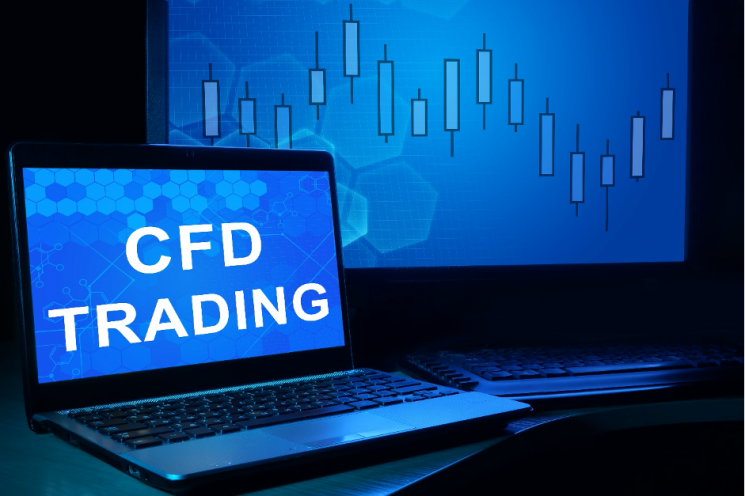Experienced investors would have heard of the term CFD trading, but if you are new to the trading and investment world, you may be wondering what does it mean and how does it work.
You can try testing it with a CFD practice account but it’s still important for you to fully understand the basics before starting even with a demo.
The first thing to know is that CFD stands for Contract for Difference. But exactly what is CFD trading? And how can it be part of your investment portfolio, both as a novice and a seasoned investor? Let’s take a look at CFD trading in more detail to help you understand.
CFD Trading Definition
A contract for difference (CFD) is a financial contract between the investor and an online provider, based upon the value of a financial asset or group of assets, without owning the agreed upon underlying asset. CFD trading can be offered on a varied number of financial instruments, such as shares, bonds, commodities, forex, metals, energy, stocks, indices, currencies and cryptocurrencies.
CFD Trading enables the opportunity to speculate on the price movement of a financial asset and involves trading on the price of an asset at the point of opening the contract to when it closes, exchanging the difference in price.
How Does CFD Trading Work?
Investors can take a position on both falling and rising prices with CFD Trading, as one of the conditions of a CFD is that the investor does not own the underlying asset.
Each CFD contract has a buy and a sell price, which are slightly higher or lower than the market value, respectively. The difference between these two prices is known as the spread, and the trading involves the prediction of movement of these prices. As previously mentioned, CFD trading allows an investor to speculate on the market in either direction of rising or falling, with the price of the CFD contract mirroring that of the underlying asset.
Similar to traditional trading, if you expect the market to rise, then you would aim to buy, which means that you are ‘going long’ or you are ‘long’, and will profit from the rise in prices. However, in contrast to traditional trading, you can also open a CFD position if you believe that the prices of the underlying asset in the market will decrease, then you would sell and be ‘going short’ or are ‘short’.
The profit and loss are reliant on the extent to which your predications on these prices are correct. The more the market goes in the direction that you have predicted, the larger the profits. Likewise, if the market moves in the opposite direction to what you have predicted, then the more you would lose.
What Is Leverage in CFD Trading?
Leverage allows investors to only invest a smaller amount compared to the actual value of the trade, meaning that they can gain exposure to a much larger position on the market without having to invest the full cost, like you would have to with a standard trade. With a leveraged CFD, you can therefore put down a smaller portion of the cost and spread your investments further, controlling a much larger position of investments. The fact that CFD trading provides this leverage and this market exposure to more winning trades, are some of the reasons CFD trading is so popular among investors.
But, when CFD trading using leverage, it is important to remember that just as much as the leverage can enhance your buying abilities by multiplying the original amount invested, it can also multiple both your profits and losses. This is because the outcome is calculated on the full size of the position, not on the actual amount invested. Therefore, it is always advised to research and take into account the leverage ratio when CFD trading.
CFD trading is a popular strategy for investors for many reasons. It allows the opportunity for trading on both rising and falling markets, with short and long positions available, depending on the market and adapting to the investor’s trading strategy. As well as the option of leverage, CFD trading can also work in terms of hedging, when you can open a CFD to prevent potential losses when owning the actual asset itself and if you believe the share prices will go down. With so many benefits, its clear to see why CFD trading works for many investors.





